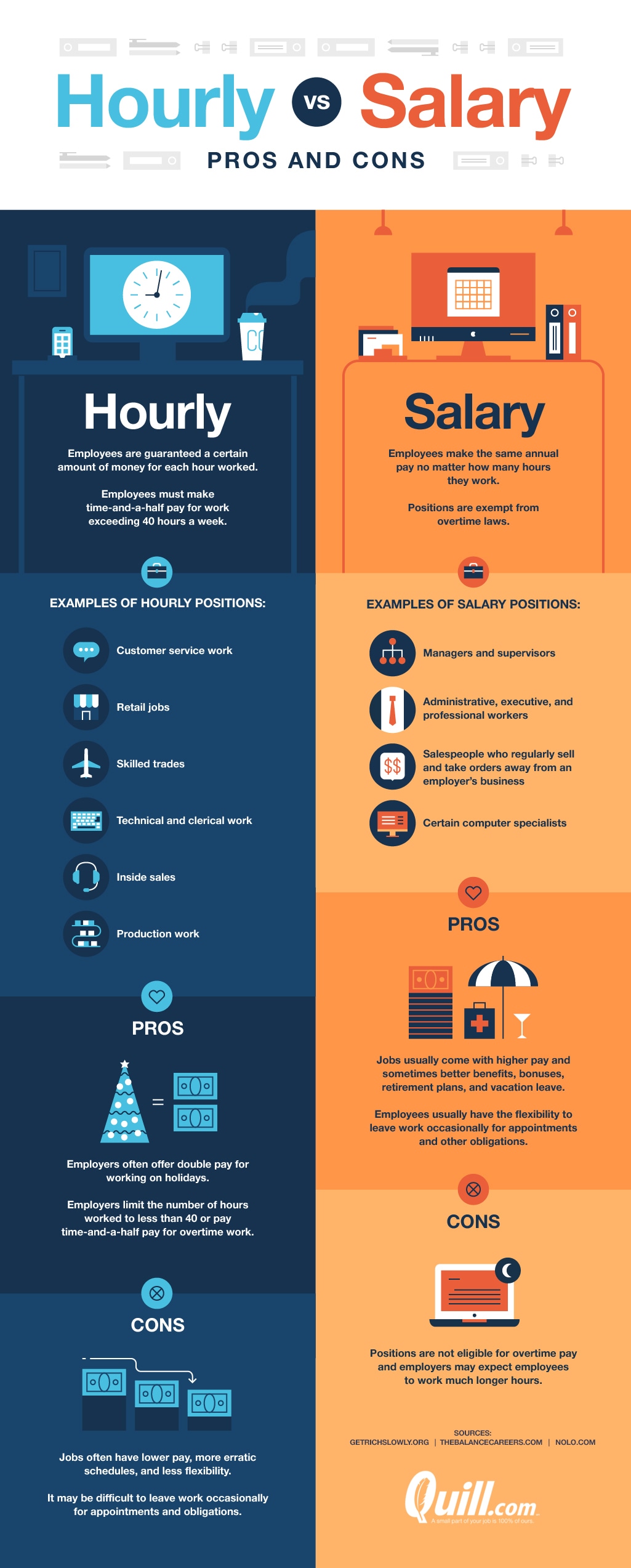What Makes a Job Worth $60 an Hour?
When it comes to high-paying careers, several factors contribute to a job’s hourly wage. Industry demand, skill level, education requirements, and work experience all play a significant role in determining salary ranges. For instance, jobs in the tech industry, such as software engineering and data science, often command high hourly wages due to the high demand for skilled professionals and the complexity of the work involved.
Education requirements also impact salary ranges. Jobs that require advanced degrees, such as medical specialties or law, tend to offer higher hourly wages due to the significant investment of time and resources required to obtain these qualifications. Similarly, work experience is a crucial factor, as professionals with extensive experience in their field can command higher salaries due to their expertise and the value they bring to their employers.
According to the Bureau of Labor Statistics, some of the highest-paying jobs in the United States include anesthesiologists, surgeons, and obstetricians, with median hourly wages ranging from $100 to over $200 per hour. Other high-paying jobs include petroleum engineers, dentists, and chief executives, with median hourly wages ranging from $60 to over $100 per hour. These jobs often require significant education, training, and experience, but offer high salaries and benefits to compensate for the investment.
Jobs that make $60 an hour or more often require a combination of skills, education, and experience. For example, a data scientist with a master’s degree in computer science and several years of experience can command an hourly wage of $60 or more due to their expertise in machine learning, data analysis, and programming. Similarly, a product manager with an MBA and several years of experience in the tech industry can also command a high hourly wage due to their skills in marketing, finance, and project management.
Understanding the factors that contribute to a job’s hourly wage can help professionals navigate the job market and make informed decisions about their careers. By acquiring the necessary skills, education, and experience, individuals can position themselves for high-paying jobs and achieve their career goals.
Top Industries for High-Paying Jobs
Several industries offer jobs that make $60 an hour or more, providing professionals with lucrative career opportunities. The finance industry, for example, is known for offering high-paying jobs in investment banking, hedge funds, and private equity. Jobs such as portfolio manager, risk manager, and financial analyst can command hourly wages ranging from $60 to over $100 per hour.
The healthcare industry is another sector that offers high-paying jobs, particularly in medical specialties such as anesthesiology, surgery, and obstetrics. These jobs require advanced degrees and extensive training, but offer high salaries and benefits to compensate for the investment. For instance, anesthesiologists can earn hourly wages ranging from $100 to over $200 per hour.
The technology industry is also a hub for high-paying jobs, with careers in software engineering, data science, and product management offering hourly wages ranging from $60 to over $100 per hour. Companies such as Google, Amazon, and Facebook are known for offering high salaries and benefits to attract top talent in the industry.
Consulting is another industry that offers high-paying jobs, particularly in management consulting, strategy consulting, and IT consulting. Jobs such as management consultant, strategy consultant, and IT consultant can command hourly wages ranging from $60 to over $100 per hour.
Other industries that offer high-paying jobs include energy, aerospace, and biotechnology. Jobs such as petroleum engineer, aerospace engineer, and biotechnology researcher can command hourly wages ranging from $60 to over $100 per hour.
It’s worth noting that while these industries offer high-paying jobs, they often require specialized skills, education, and experience. Professionals who are interested in pursuing careers in these industries should be prepared to invest time and effort in acquiring the necessary skills and qualifications.
Jobs that make $60 an hour or more are available in a variety of industries, and professionals who are interested in pursuing high-paying careers should consider exploring these options. By acquiring the necessary skills and qualifications, individuals can position themselves for success in these industries and achieve their career goals.
How to Land a High-Paying Job: Essential Skills and Qualifications
To land a high-paying job, it’s essential to possess the right combination of skills and qualifications. Education is a critical factor, as many high-paying jobs require advanced degrees or certifications. For example, jobs in the finance industry, such as investment banking and portfolio management, often require a Master’s degree in finance or a related field.
Certifications are also important, particularly in industries such as technology and healthcare. For instance, certifications like CompTIA A+ or Cisco CCNA can be beneficial for IT professionals, while certifications like RN or MD can be essential for healthcare professionals.
Work experience is also a crucial factor, as many high-paying jobs require several years of experience in a related field. For example, jobs like data scientist or product manager often require at least 5-7 years of experience in a related field, as well as a strong track record of achievements and accomplishments.
In addition to education, certifications, and work experience, there are several other essential skills and qualifications that can help you land a high-paying job. These include:
- Strong communication and interpersonal skills
- Ability to work in a team environment
- Strong problem-solving and analytical skills
- Ability to adapt to changing circumstances and priorities
- Strong leadership and management skills
To acquire these skills and qualifications, consider the following tips:
- Pursue higher education or certifications in your field
- Gain relevant work experience through internships or entry-level positions
- Develop your communication and interpersonal skills through training or practice
- Build a strong professional network through attending industry events or joining professional organizations
- Stay up-to-date with industry trends and developments through continuous learning and professional development
By possessing the right combination of skills and qualifications, you can increase your chances of landing a high-paying job and achieving your career goals. Remember to stay focused, persistent, and always be willing to learn and adapt to new challenges and opportunities.
Jobs That Make $60 an Hour: A Closer Look
There are several jobs that make $60 an hour or more, offering professionals a lucrative career path. Here, we’ll take a closer look at some of these jobs, including their job descriptions, salary ranges, and growth prospects.
Data Scientist: Data scientists are responsible for collecting, analyzing, and interpreting complex data to help organizations make informed decisions. They typically require a Master’s degree in computer science, statistics, or mathematics, and can earn hourly wages ranging from $60 to over $100 per hour.
Product Manager: Product managers are responsible for developing and launching new products, as well as managing existing ones. They typically require a Bachelor’s degree in business, marketing, or a related field, and can earn hourly wages ranging from $60 to over $100 per hour.
Software Engineer: Software engineers design, develop, and test software programs for a variety of industries, including gaming, finance, and healthcare. They typically require a Bachelor’s degree in computer science or a related field, and can earn hourly wages ranging from $60 to over $100 per hour.
Other jobs that make $60 an hour or more include:
- Aerospace Engineer: $60-$120 per hour
- Pharmacist: $60-$120 per hour
- Dentist: $60-$150 per hour
- Physician: $60-$200 per hour
These jobs often require advanced degrees, certifications, and extensive experience, but offer high salaries and benefits to compensate for the investment. Additionally, many of these jobs are in high demand, offering professionals a sense of job security and stability.
It’s worth noting that salaries can vary widely depending on factors such as location, industry, and experience. However, these jobs are generally considered to be among the highest-paying careers available.
By understanding the job descriptions, salary ranges, and growth prospects of these high-paying jobs, professionals can make informed decisions about their career paths and take steps to pursue their goals.
The Future of High-Paying Jobs: Trends and Opportunities
The job market is constantly evolving, and new trends and opportunities are emerging in various fields. To stay ahead of the curve, it’s essential to understand the future of high-paying jobs and how to position yourself for success.
Artificial intelligence (AI) is one of the most significant trends in the job market, with AI-related jobs expected to grow exponentially in the coming years. Professionals with expertise in AI, machine learning, and data science can expect high salaries and benefits, with median hourly wages ranging from $60 to over $100 per hour.
Renewable energy is another field that’s gaining momentum, with jobs in solar and wind energy, energy efficiency, and sustainable development offering high salaries and growth prospects. Professionals with expertise in engineering, environmental science, and policy can expect median hourly wages ranging from $60 to over $100 per hour.
Cybersecurity is another critical field that’s expected to grow significantly in the coming years, with jobs in security analysis, penetration testing, and incident response offering high salaries and benefits. Professionals with expertise in computer science, networking, and security can expect median hourly wages ranging from $60 to over $100 per hour.
Other emerging trends and opportunities in high-paying jobs include:
- Healthcare technology: $60-$120 per hour
- Financial technology: $60-$150 per hour
- Environmental consulting: $60-$120 per hour
- Software development: $60-$150 per hour
To position yourself for success in these fields, it’s essential to stay up-to-date with the latest trends and technologies. This can be achieved through continuous learning, professional development, and networking.
Additionally, professionals can consider acquiring skills and certifications in emerging technologies such as AI, blockchain, and cloud computing. This can help them stay competitive in the job market and increase their earning potential.
By understanding the future of high-paying jobs and positioning yourself for success, you can unlock the potential for a $60-an-hour salary and achieve your career goals.
How to Negotiate a $60-an-Hour Salary
Negotiating a high salary can be a challenging task, but it’s essential to get it right if you want to earn a $60-an-hour salary. Here are some tips and strategies to help you negotiate a high salary:
Research Industry Standards: Before entering into salary negotiations, it’s essential to research industry standards for your role. This will give you a basis for your negotiation and help you make a strong case for your desired salary.
Highlight Your Achievements: When negotiating a salary, it’s essential to highlight your achievements and the value you can bring to the organization. This can include your education, work experience, skills, and any relevant certifications or training.
Build a Strong Personal Brand: Building a strong personal brand is essential for negotiating a high salary. This includes having a professional online presence, networking, and building relationships with people in your industry.
Be Confident but Respectful: When negotiating a salary, it’s essential to be confident but respectful. Avoid being pushy or aggressive, as this can harm your chances of getting the salary you want.
Be Flexible: Salary negotiations can be a give-and-take process. Be flexible and open to different options, such as additional benefits or a performance-based raise.
Use Data to Your Advantage: Use data to your advantage when negotiating a salary. This can include data on industry standards, the cost of living in your area, and the value you can bring to the organization.
Don’t Be Afraid to Walk Away: If you’re not happy with the salary offer, don’t be afraid to walk away. This shows that you’re willing to stand up for yourself and your worth, and it may cause the employer to reconsider their offer.
By following these tips and strategies, you can negotiate a $60-an-hour salary and achieve your career goals.
Remember, negotiating a salary is a normal part of the hiring process. Employers expect it, and it’s a chance for you to showcase your skills and value.
So, don’t be afraid to negotiate a high salary. You deserve it, and it’s essential for achieving your career goals.
Common Challenges and Solutions for High-Paying Jobs
While high-paying jobs can offer many benefits, they can also come with unique challenges. Here are some common challenges faced by professionals in high-paying jobs, along with solutions and strategies for managing them:
Work-Life Balance: One of the most common challenges faced by professionals in high-paying jobs is maintaining a healthy work-life balance. With demanding work schedules and high expectations, it can be difficult to find time for personal and family responsibilities.
Solution: Prioritize self-care and set boundaries between work and personal life. Make time for activities that bring joy and relaxation, and learn to say no to excessive work demands.
Stress and Burnout: High-paying jobs can be stressful and demanding, leading to burnout and exhaustion. This can impact not only personal well-being but also job performance and overall career success.
Solution: Practice stress-reducing techniques such as meditation, exercise, and deep breathing. Take regular breaks and prioritize self-care activities. Consider seeking support from a mental health professional if needed.
Pressure to Perform: High-paying jobs often come with high expectations and pressure to perform. This can lead to anxiety and stress, particularly if performance is tied to bonuses or promotions.
Solution: Focus on delivering high-quality work and meeting expectations, but also prioritize self-care and stress management. Communicate openly with managers and colleagues about workload and performance expectations.
Long Hours and Overtime: High-paying jobs often require long hours and overtime, which can impact personal and family life.
Solution: Prioritize time management and productivity, focusing on high-priority tasks and minimizing overtime. Consider negotiating flexible work arrangements or telecommuting options.
By understanding these common challenges and implementing effective solutions, professionals in high-paying jobs can maintain a healthy work-life balance, reduce stress and burnout, and achieve long-term career success.
Conclusion: Unlocking the Potential for a $60-an-Hour Salary
In conclusion, achieving a $60-an-hour salary requires a combination of skills, qualifications, and experience. By understanding the factors that contribute to a job’s high hourly wage, identifying top industries and job titles, and acquiring essential skills and qualifications, professionals can unlock the potential for a high-paying career.
Additionally, staying up-to-date with emerging trends and opportunities, negotiating a high salary, and managing common challenges can help professionals achieve long-term success and financial stability.
Remember, continuous learning, skill-building, and professional development are key to achieving a $60-an-hour salary. By investing in yourself and staying adaptable, you can unlock the potential for a high-paying career and achieve your financial goals.
Whether you’re just starting your career or looking to transition to a new field, the insights and strategies outlined in this article can help you navigate the path to a $60-an-hour salary. So, take the first step today and start building the skills and qualifications you need to succeed in a high-paying career.
With dedication and hard work, you can unlock the potential for a $60-an-hour salary and achieve the financial stability and success you deserve.






